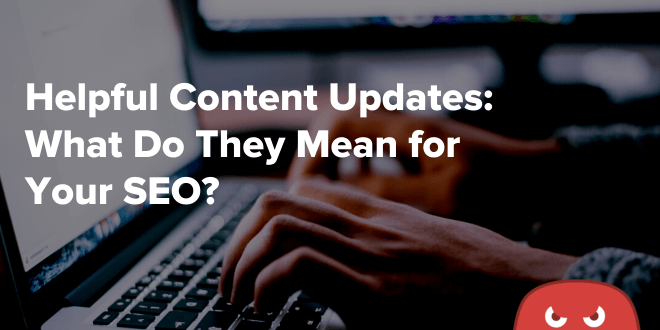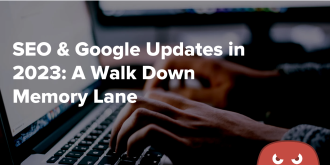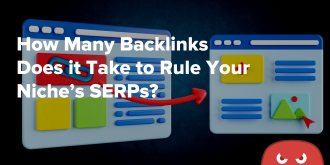Quick Links
Google launched an update to its Helpful Content Update in September 2023, which is expected to roll out fully by the end of the month. Among the key changes are:
- Relaxed guidance on AI-generated content
- A crackdown on third-party content
- A stern eye on fake freshness
- Better guidance for self-assessing content helpfulness
Compared to previous updates, most of these changes are seemingly small.
But some websites will be affected–even if you’re not guilty of these “SEO crimes” now, you’ll need to stay in compliance moving forward.
Let’s explore further.
What Is Google’s Helpful Content System?
Google’s goal has always been to provide its users with the most helpful, relevant information. Google handles more than 8.5 billion searches a day, and its users keep coming back because Big G delivers what people want and expect.
That’s a lot harder to do when people try to game the system with SEO hacks and shortcuts.
It’s content that looks good on paper but provides no real substance to the user.
That’s why Google created its Helpful Content System. These algorithms hone in on quality signals to separate helpful vs. unhelpful content.
They work in conjunction with Google’s other algorithms to deliver top-notch results.
What’s In the September 2023 Helpful Content Update?
With every algorithm change, website owners go back to the drawing board to fix their issues in hopes of ranking higher.
For some, this also means finding workarounds to the updates even if their goal isn’t to be “helpful.”
In other words, find new ways to hack the rankings.
That’s why Google continuously releases new updates, like the September 2023 Helpful Content Update.
Here’s what’s in store this time:
Google Leans Into AI-Created Content
Previously, Google drew a hard line against AI content. Google Search Advocate John Mueller had this to say about AI-generated content last year:
“People have been automatically generating content in lots of different ways… If you’re using machine learning tools to generate your content, it’s essentially the same as if you’re just shuffling words around, or looking up synonyms, or doing the translation tricks that people used to do.”
However, Google’s Helpful Content Update September 2023 shows that Google has had a change of heart, at least in part.
Applied to content helpfulness, Google had previously shared it would prioritize content created by humans.
Now, that piece of guidance has disappeared, aligning with Google’s evolving sentiments in favor of AI-created content.
Here’s the before:
“Google Search’s helpful content system generates a signal used by our automated ranking systems to better ensure people see original, helpful content written by people, for people, in search results.”
And here’s the updated copy:
“Google Search’s helpful content system generates a signal used by our automated ranking systems to better ensure people see original, helpful content created for people in search results…”
It’s a hint that AI content isn’t going anywhere, but marketers need to be smart about how they use it.
Third-Party Content May Be Seen as Less Helpful
Hosting third-party content on domains or subdomains is a popular trend. The idea is that the authority of the main domain can boost the content on the subdomain.
It works, until it doesn’t.
Google’s Helpful Content update shares that third-party content may now be included in site-wide signals Google uses to determine content quality and helpfulness.
“If you host third-party content on your main site or in your subdomains, understand that such content may be included in site-wide signals we generate, such as the helpfulness of content. For this reason, if that content is largely independent of the main site’s purpose or produced without close supervision or the involvement of the primary site, we recommend that it should be blocked from being indexed by Google.”
Publishers take note: If you’re hosting content that has little or nothing to do with your website’s main purpose or content, your rankings might be affected.
Also, Google shares this signal is weighted. Sites with lots of unhelpful third-party content are likely to be affected more than sites with less unhelpful third-party content.
Google’s Helpful Content Self-Assessment Guidance Gets an Upgrade
Playing by Google’s Helpful Content rules requires publishers to understand and align with Google’s definition of helpfulness. In this recent update, Google expands on its general guidance to help publishers self-assess whether they’re producing helpful content.
You can view the full self-assessment guidelines on helpful content for yourself.
We’ve highlighted a few key changes based on the recent update.
- Ideally, content should be written or reviewed by an expert or someone who knows the topic well.
- Avoid changing the dates of pages to make your content appear fresh when the content has not substantially changed.
- Do not add a lot of new content or remove a lot of old content to make your site appear fresh.
Two out of three changes focus on faking freshness, something publishers should take seriously.
Our new Ultimate SEO Packages were designed to make sure you hit these notes of excellence.
What to Do If the Helpful Content Update Negatively Affects Your Website
If you’re producing helpful content already, these changes likely won’t affect your website. In fact, they might help you by penalizing outperformers who aren’t living up to Google’s helpfulness standards.
That said, some websites that are (intentionally or unintentionally) producing unhelpful content might be in for a wake-up call.
Use this as an opportunity to learn and improve.
Review Google’s self-assessment on helpful content.
Remove what isn’t helpful and invest in new, better content creation.
Speak to an expert to help. A drop in rankings doesn’t have to be permanent.
If you’d like some help creating helpful, Google-friendly content for your website, Hoth X has you covered. Our fully managed SEO service leaves no detail or opportunity untouched. Get in touch to learn more.








Google’s HCU update hit a few of my sites so I had to ramp up content production to appear fresher.
I don’t think website owners can relax on updates in the future. Reddit and Quora get updated millions of times daily, which makes it hard to complete.
My 4-step strategy is to post daily, update old content, share on social media, and delete thin content. Looks like it’s working so far.